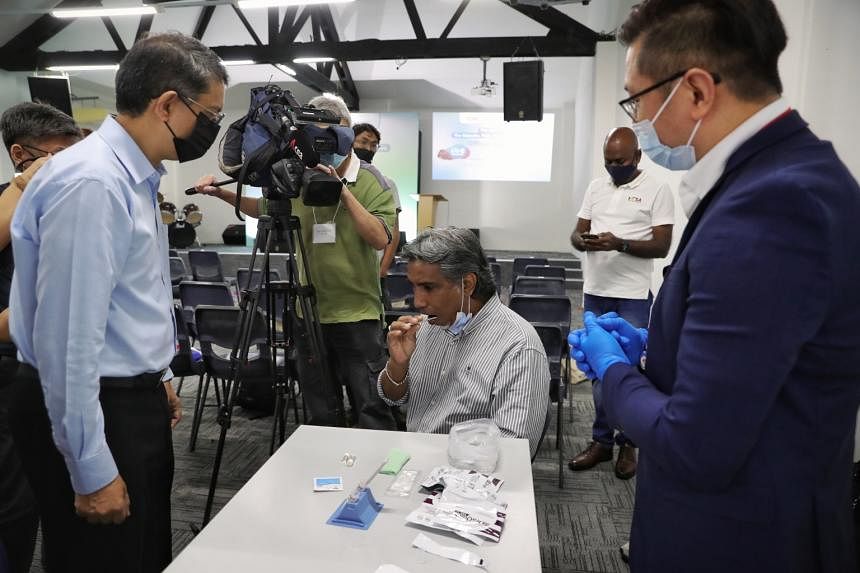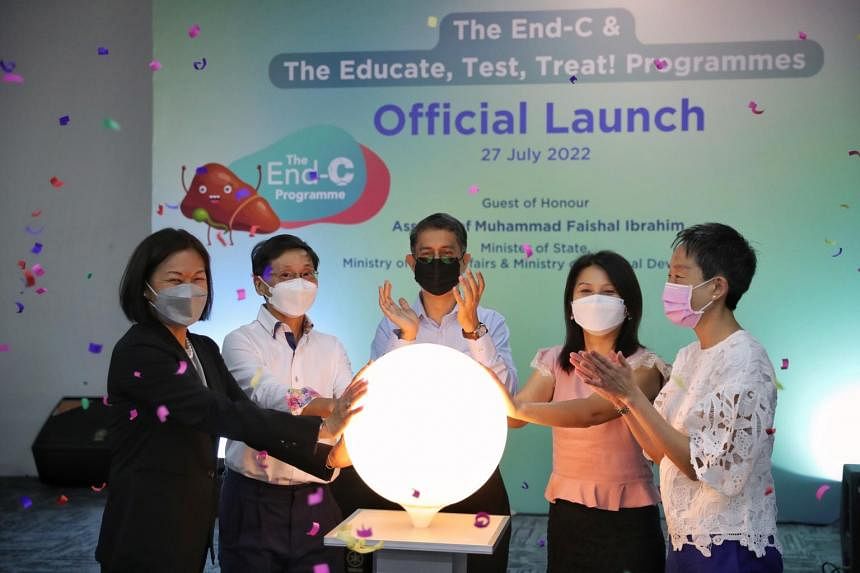SINGAPORE - Two programmes to help former drug offenders get tested and treated for hepatitis C were launched on Wednesday (July 27), ahead of World Hepatitis Day on Thursday.
The Educate, Test, Treat! (ETT) programme aims to educate and provide testing for hepatitis C in high-risk groups such as former drug offenders.
Those who test positive for hepatitis C will be referred to Tan Tock Seng Hospital (TTSH) to receive subsidised treatment under the hospital's End-C programme, which runs concurrently with the ETT programme.
Former drug offenders are deemed high risk because hepatitis C can be transmitted through the sharing of contaminated needles, said Dr Yew Kuo Chao, a senior consultant at TTSH.
"We also believe this group is more vulnerable because, over the past 10 years, we have seen around 30 per cent to 40 per cent of former drug users in halfway houses diagnosed with hepatitis C."
As a comparison, only about 0.2 per cent of people in Singapore have hepatitis C, according to the National University Hospital's website.
The new initiatives involve 65 former drug offenders for a start, and will expand to cover more than 200 by mid-2023.
The programmes are the first in Singapore to focus on high-risk groups to eliminate the transmission of hepatitis C.
TTSH is studying the reliability of using a blood sample from a finger-prick and saliva to test the participants for hepatitis C.
Current methods require blood to be drawn and tested at clinics or hospitals, explained Dr Yew, who heads the TTSH study.
Hepatitis C is spread via blood and bodily fluids. When left untreated, the virus can cause damage to the liver, lead to liver cancer, or even death. It can be treated by taking a course of oral medication for eight to 12 weeks.
The ETT programme is started by non-profit organisation HCSA Community Services, coordinated by HCSA Highpoint Halfway House - a residential shelter for recovering drug addicts and ex-offenders - and supported by biopharmaceutical company Gilead Sciences.
It will run with the End-C programme for a year and, if successful, similar programmes will be rolled out nationally.

Minister of State for Home Affairs Muhammad Faishal Ibrahim, who was the guest of honour at the launch of the programmes at the HCSA Community Services headquarters in Geylang, said the initiatives can correct the misconception that hepatitis C is a virus that cannot be treated.
Associate Professor Faishal said: "Ultimately, the goal of the initiative is to provide participants from the various halfway houses with handy information on hepatitis C, accessible and affordable means to be tested and treated, as well as social support from the community to keep them going on their recovery journey."
Other halfway houses involved in the programmes include Pertapis Halfway House, Selarang Halfway House and The Helping Hand.
Former drug offender Harrison Azahari, 50, said he was nervous when he was diagnosed with hepatitis C 10 years ago as there were many misconceptions about the disease then.
He did not seek treatment for the disease but as one of the participants in the new programmes, he will soon receive treatment.
Mr Azahari, who works in the automotive industry, said: "There was a lot of stigma relating to hepatitis C. People thought the disease was like HIV (the human immuno-deficiency virus which causes Aids) and not many people knew what it was. But now with the programmes, we are educated on the disease and there is a clearer path to treatment."




